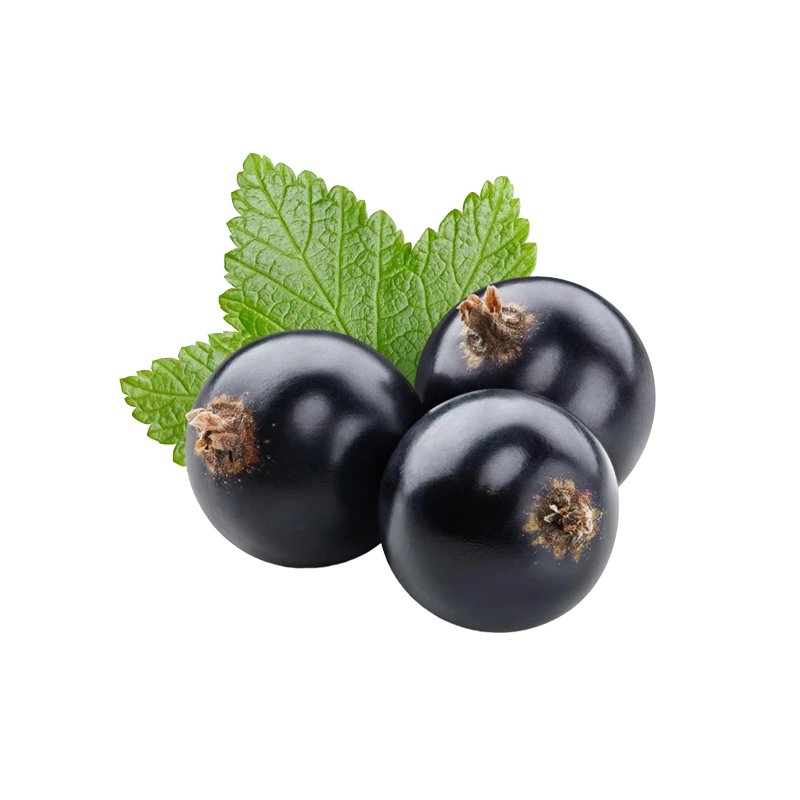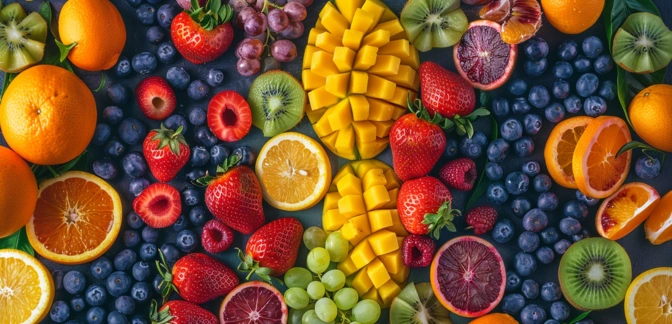Blackcurrants — Nutrients, Health Benefits, And Shopping Tips

Written by Listonic Team
Last update on September 4, 2024
Nutrients
Nutrition facts
Amount per 100 g
Calories
🔥 63 kcal
| Nutrition per: 100 g | Value | % Daily Value* |
|---|---|---|
| Carbs | 15 g | 5.45% |
| Fiber | 4 g | 14.29% |
| Sugars | 15 g | 30% |
| Glycemic Index | 15 | - |
| Protein | 1 g | 2% |
| Sodium | 2 mg | 0.09% |
| Total Fat | 0 g | - |
*The % of Daily Value (DV) tells you how much a nutrient in a serving of food contributes to a daily diet. 2,000 calories a day is used for general nutrition advice.
15
🟢 Low Glycemic Index
Key takeaways
Health benefits
- Rich in antioxidants such as anthocyanins and Vitamin C, which help protect the body from free radicals and reduce inflammation.
- Supports immune function due to their high Vitamin C content, which helps fight infections and promotes overall health.
- Promotes heart health by improving blood flow and reducing blood pressure due to their high potassium content.
- Contains essential vitamins and minerals such as Vitamin A, iron, and calcium, which are important for overall health and well-being.
Health risks
- Potential allergic reactions in some individuals, causing symptoms like itching, swelling, or difficulty breathing.
- High acidity which can cause stomach discomfort or exacerbate conditions like acid reflux in sensitive individuals.
- Pesticide residue on conventionally grown blackcurrants, which can pose health risks over time if not properly washed.
- Interaction with blood thinners due to the high vitamin K content in blackcurrants, which can affect blood clotting.
How to choose blackcurrants
Blackcurrants should be firm, glossy, and a deep purple, nearly black, indicating ripeness and a robust flavor. They should emit a tart, aromatic fragrance and remain firm to the touch. Check that the currants are devoid of mold or any shriveled fruits.
Do not choose blackcurrants that appear dull or are dry and shriveled, typically signs they are beyond their best. Also avoid any with mold presence or a musty odor, as these indicate spoilage.

How to store blackcurrants
Fresh blackcurrants should be stored in the refrigerator, preferably in a perforated plastic bag. Keeping them dry and unwashed until use helps extend their freshness. Blackcurrants can last up to a week when stored properly.
Moisture can cause blackcurrants to mold, so it's best to avoid washing them before storage. Do not store blackcurrants in airtight containers, as they need some air circulation. Keeping them away from ethylene-producing fruits helps prevent premature ripening.
✅ Extra Tip
How long do they last?
Blackcurrants can last for 1-2 weeks in the refrigerator. To extend their shelf life, they can be frozen and kept for up to 6-12 months. Spread them on a baking sheet to freeze individually before transferring to a sealed container or bag for the best results.
What to do with leftovers?
Leftover blackcurrants can be used in a variety of ways, both sweet and savory. Add them to smoothies or bake them into muffins, cakes, or scones for a burst of tart flavor. Blackcurrants are also excellent in jams or preserves, where their natural tartness shines.
Use blackcurrants in salads with greens, nuts, and cheese, or cook them down into a blackcurrant sauce to serve with roasted meats like duck or pork. If you have a lot of blackcurrants, consider making homemade blackcurrant cordial or syrup, which can be mixed into drinks or drizzled over desserts. Blackcurrants can also be incorporated into a fruit compote, perfect for serving with pancakes, waffles, or yogurt. For a savory option, add blackcurrants to a grain salad or use them in a sauce for game meats, where their tartness balances rich flavors.
👨⚕️️ Medical disclaimer
Discover products from other categories
Listonic Team
Fact-checked
Our editorial team checked this article to make sure it was accurate at the time of publishing it.
Get the top-rated shopping list app

blackcurrants
1 piece







